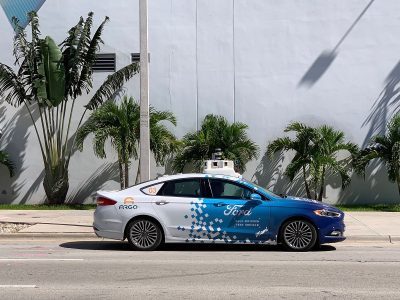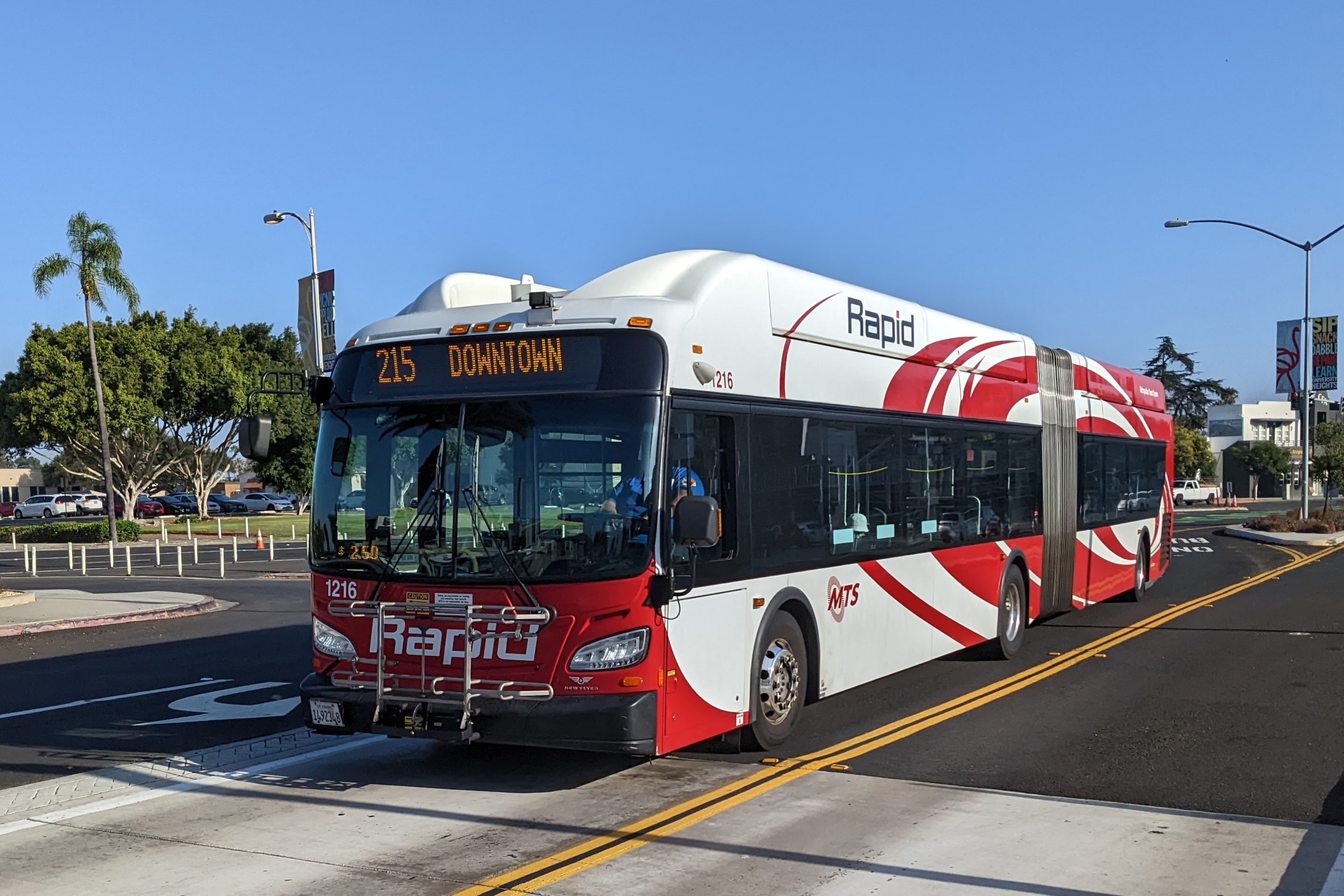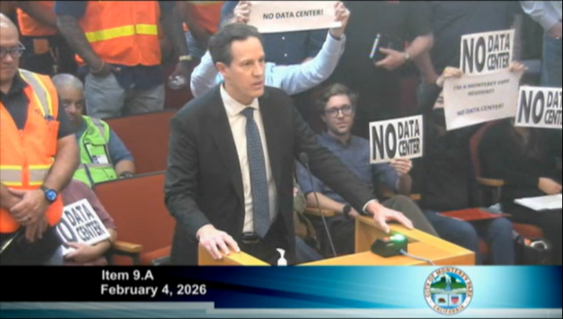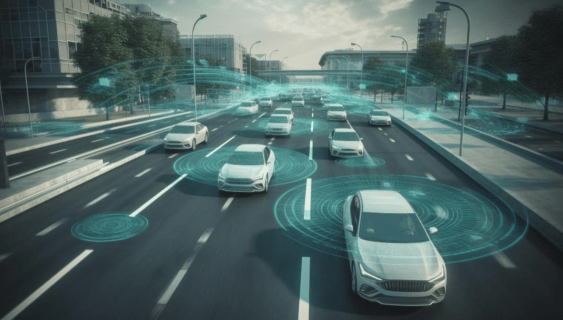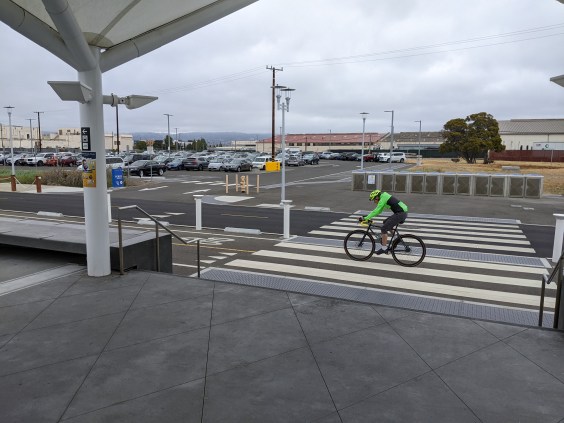A vehicle automation company known for prioritizing the concerns of vulnerable road users more than others in the industry is closing — and it's sparking new questions about whether the companies that remain can afford to put safety first.
Last week, automakers Ford and Volkswagen announced that they would end their investments in Argo AI, prompting the sudden shutdown of the automated driving startup that had long been considered among the best-positioned to deliver on the promises of so-called driverless cars without further entrenching car dependency.
Unlike many of its rivals, Argo largely focused on developing fleet vehicles that would operate only in limited roadway scenarios — also known as "Level Four" AVs — rather than selling what many experts now consider to be a pipe dream of personally owned robocars that can operate in even the most complex pedestrian-oriented environments.
And some worry that the remaining players — in particular, Elon Musk's Tesla, which experts say dangerously over-sells the capabilities of its "Full Self Driving" technology — won't carry forward Argo's responsible approach.
"You’d think that companies that bought into the hype the least would have the best chance of moving forward," said Edward Niedermeyer, host of the Autonocast podcast. "Unfortunately, with Argo, that doesn’t seem to have been the case. ... Tesla is still selling 'Full Self Driving' with almost no consequences. The tragedy of the Argo situation, I think, is that they did things the right way and were kind of punished for it."
https://t.co/sdzoxOXH8o seemed to take road safety more seriously than many competitors, including a creative collaboration with @BikeLeague.
— David Zipper (@DavidZipper) October 26, 2022
A lot of people have seen Argo as one of the AV "good guys." https://t.co/NRl5guZgG2 pic.twitter.com/SrqL3on69I
Ironically, Tesla was revealed to be facing its own potential setbacks on the same day the Argo news broke — though whether those setbacks will stick remains to be seen.
Journalists at Reuters recently made public that the Department of Justice has been investigating the controversial automaker for more than a year, following a string of crashes involving their cars' Autopilot feature, which critics say is misleadingly named. Tesla has been repeatedly dinged by advocates for selling the technology — and its even-more-dubiously-branded "Full Self Driving" system — as a true replacement for an attentive human driver, even as its owner's manual warns motorists to keep their hands on the wheel and their eyes on the road.
"A video currently on the company’s website says: 'The person in the driver’s seat is only there for legal reasons. He is not doing anything. The car is driving itself,'" Reuters' Mike Spector and Dan Levine pointed out.
But Niedermeyer — who also wrote the book Ludicrous: The Unvarnished Story of Tesla Motors — points out that regulators have yet to actually stop Tesla from using dangerous "self-driving" rhetoric — or emphasizing driver convenience over road user safety in their system design itself.
"Tesla continuing to sell Full Self Driving' is proof that there’s more reckoning to come, because Full Self Driving has always been a scam. ... You talk to any expert who’s actually put AVs on the road, and they’ll tell you that," he said. "The reason [FSD] has been successful is because it matches our mental model when we say the words 'self-driving car.' Tesla is really the only company that’s selling that idea — and it's worth examining why Argo went under while Tesla is still around."
We make everything all about technology these days, the good and the bad alike, but the "self-driving car bubble" was a manifestly human failure. Hubris, greed, manipulation and self-deception are what failed in the AV sector... not technology.
— E.W. Niedermeyer (@Tweetermeyer) October 26, 2022
Part of that reason has to do with the economics of developing a Level Four AV — something Niedermeyer says automakers like Ford and VW are only now realizing may not pencil out for them, even if many believe the tech itself is within reach.
Because the Level Four vehicles undergoing testing today tend to be covered in "hundreds of thousands of dollars worth of sensors" — and, because, by their nature, they operate only in limited roadway scenarios, like a fully driverless bus on a dedicated bus lane — Niedermeyer says the most logical applications for them would probably subtract vehicles from the road, yielding an "urbanist's dream" of reduced car dependence but cutting into automaker profit margins.
The so-far-mythical Level Five AV, though, could operate anywhere without any human help, and supercharge the private vehicle market in a way never seen before — but the industry is growing increasingly less optimistic that it will exist anytime soon.
"[This tech was sold] to car companies on the pretense that it was going to destroy their business if they didn't control it themselves — when in fact it was completely different business altogether," he said. "The problem is less that Level Four is so far off; it’s that the financial incentives for doing it are much weaker than [putting AV tech on] personal cars."
Niedermeyer says Ford and VW pulling the plug on Argo may be a sign that more of the auto industry is beginning to recognize that the cost of endlessly chasing Level Five automation just isn't worth paying — even if thoughtfully deployed Level Four vehicles might have helped solve a host of societal problems.
"Car companies wanted to believe so badly that the car as we know it today would just drive itself," he said. "What we’ve seen for the last 10 years is the power of that desire to believe, not because there’s an identifiable path to get there, but because they want it so much that they’ll gamble on the long shot — until they can't anymore."
